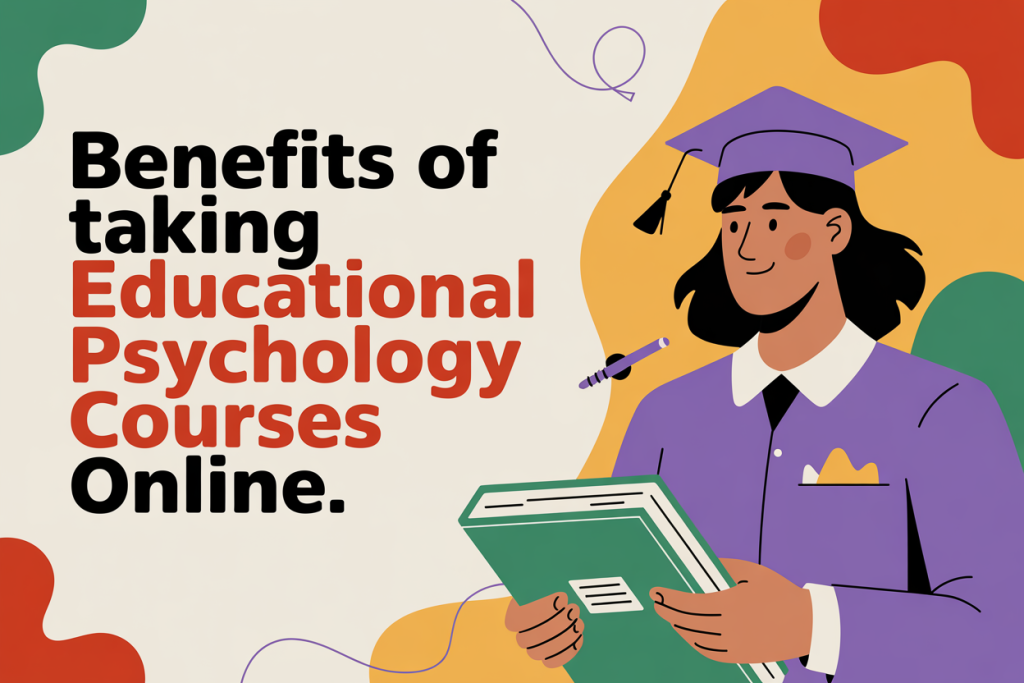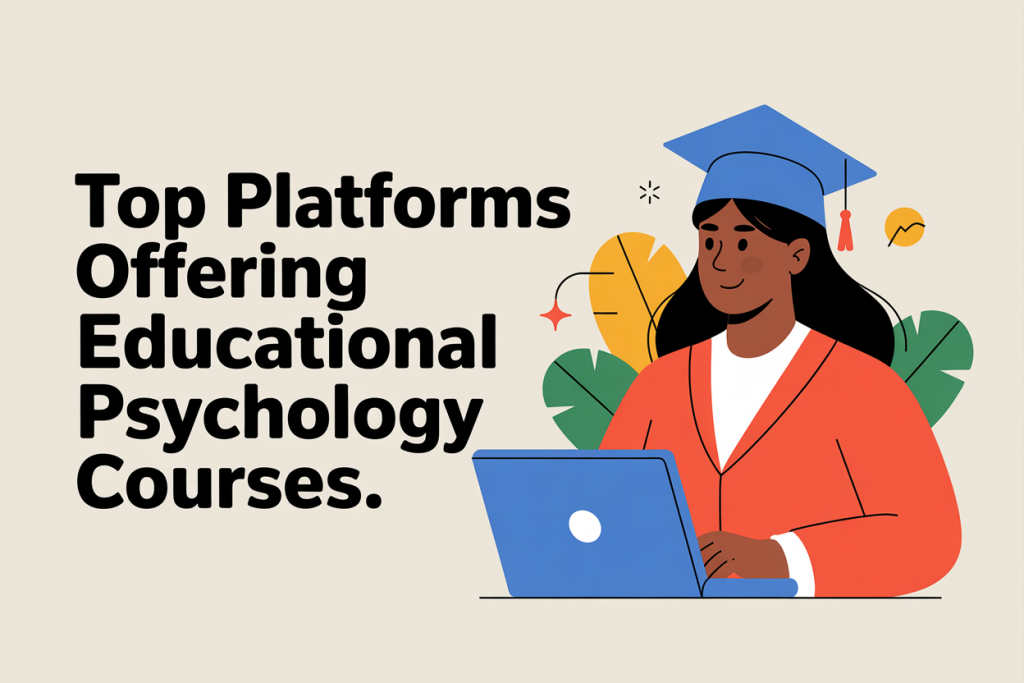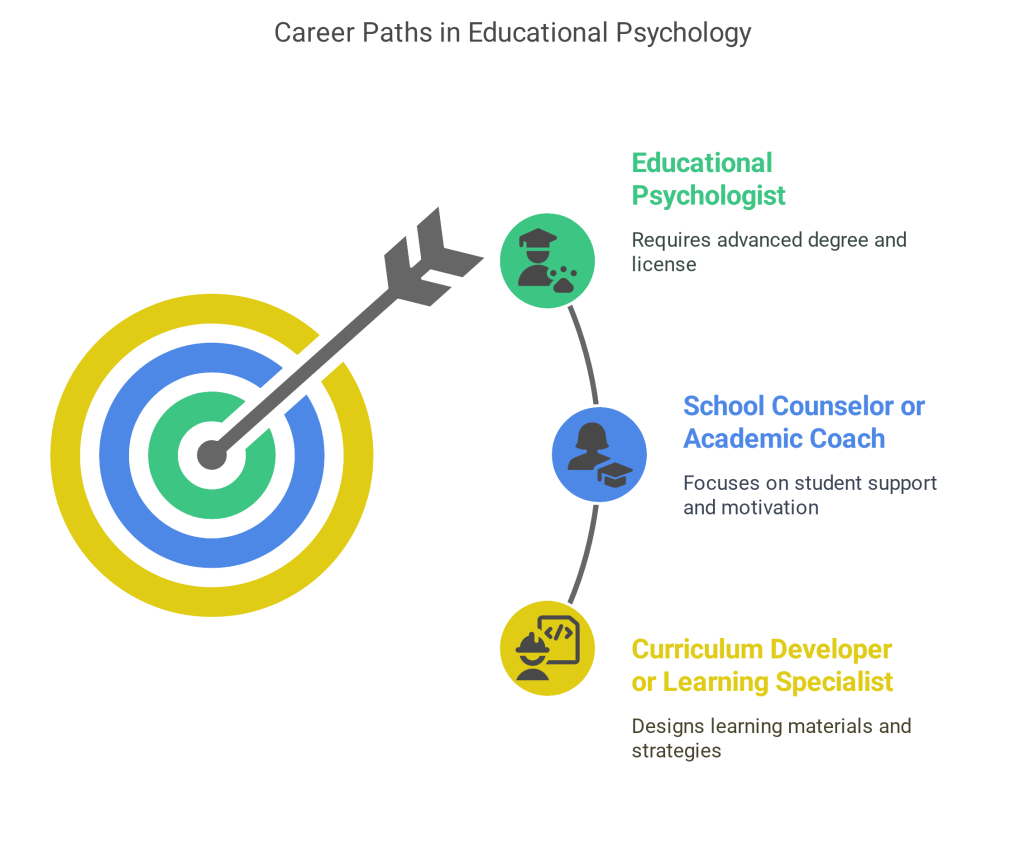Looking for the best educational psychology courses online? Start with beginner-friendly platforms like Coursera, edX, and Udemy that offer flexible, affordable, and certified programs designed to build a strong foundation in psychology for educators, parents, or future professionals.
Understanding how students learn is one of the most powerful tools an educator—or anyone in the learning space—can have. Yet, finding the right educational psychology course online can feel overwhelming. With hundreds of platforms, course types, and certification options, it’s tough to know where to begin or which one will actually help you grow.
Don’t worry—you’re in the right place. Whether you’re aiming to become a licensed psychologist or just want to better support learners, we’ve broken it all down for you. From top-rated courses to what to expect in each program, we’ll walk you through it all in plain English. Let’s dive in and find the perfect course for your goals.
Contents
- 1 What Is Educational Psychology?
- 2 Benefits of Taking Educational Psychology Courses Online
- 3 Types of Online Educational Psychology Courses
- 4 Top Platforms Offering Educational Psychology Courses
- 5 Choosing the Right Online Psychology Course
- 6 Career Paths After Completing Educational Psychology Courses
- 7 FAQs About Online Educational Psychology Courses
- 8 Final Thoughts
What Is Educational Psychology?
Key Concepts in Educational Psychology
Educational psychology is the study of how people learn. It looks at how we absorb, process, and keep knowledge. This includes topics like motivation, memory, cognitive development, and learning styles. Experts in this field use research to find out what helps students do better in school and other learning settings.
Some of the most known theories come from psychologists like Jean Piaget (stages of cognitive development) and B.F. Skinner (behaviorism). These theories show how students grow mentally and how teachers can shape their learning methods. You can read more about these ideas on Verywell Mind.
This field also studies classroom management, student emotions, and group behavior. Understanding these helps teachers improve how they talk to students, give instructions, and handle conflict. This is key for students of all ages—from preschoolers to adults.
Relevance in Modern Education Systems
Today, schools and colleges rely more on educational psychology to support diverse learners. With more students learning online or in mixed settings, knowing how people learn has become more important than ever.
For example, educational psychologists help design online lessons that keep students engaged. They also help create assessment tools that match how students think and solve problems. In special education, this knowledge helps develop Individualized Education Programs (IEPs).
Governments and education boards also use findings from this field to set policies. The U.S. Department of Education and groups like APA’s Division 15 share research and set standards that shape learning at all levels.
Who Should Study Educational Psychology?
This subject is not just for teachers. Anyone who helps others learn can benefit from it. Here are a few people who may find it useful:
- Teachers and educators who want to improve learning outcomes
- Parents who homeschool or help their children with school
- School counselors looking to support student behavior and growth
- Instructional designers who build e-learning courses
- Coaches or trainers who teach adults new skills
If you want to help others learn better, educational psychology gives you tools that really work.
Benefits of Taking Educational Psychology Courses Online

Flexibility and Self-Paced Learning
One of the biggest benefits of taking these courses online is flexibility. You can learn at your own pace and fit your studies around a job or family. This is perfect for teachers or working adults who don’t have time for regular classes.
Most platforms like Coursera, edX, and Udemy let you start anytime. You can pause, rewind, or repeat lessons when you need to. This helps you learn without stress.
Affordable and Accessible Options
Online learning can also be more budget-friendly than traditional schools. Many platforms offer free versions of their courses or give financial help. Some even offer certificates that can boost your resume.
Here’s a quick look at cost comparisons:
| Platform | Free Option | Price Range (Paid) | Certificate Included |
|---|---|---|---|
| Coursera | Yes | $39 – $79/month | Yes (with paid plan) |
| edX | Yes | $50 – $300/course | Yes (optional) |
| Udemy | No | $10 – $100/course | Yes |
These courses are also accessible worldwide. Whether you live in a city or a remote area, all you need is the internet to get started.
Certification and Career Advancement
Getting certified after completing a course can help your career growth. Many employers now recognize online certificates, especially from known platforms. These credentials show you are serious about learning and improving.
Some programs are even part of degree pathways. That means you can use your course credits if you later want to study for a full degree in psychology or education.
You’ll also build a stronger profile if you work in teaching, school counseling, or education policy. Some advanced certifications can lead to jobs in instructional design, curriculum planning, or education consulting.
Types of Online Educational Psychology Courses
Introductory vs. Advanced Courses
If you’re just getting started, choose an introductory course. These courses explain key ideas, major theories, and common terms. You’ll learn about topics like student behavior, motivation, and how memory works.
Advanced courses are better for those with experience or a degree in education. These go deeper into research methods, child psychology, and teaching strategies. They may also include case studies and final projects.
Many websites, like FutureLearn, offer both types of courses. You can start simple and move up as you learn more.
Specializations – Child, Adolescent, or Cognitive Psychology
Many platforms let you choose a specialization. This helps you focus on an age group or specific need. Some of the top choices include:
- Child psychology: Best for parents, early educators, or daycare workers
- Adolescent psychology: Great for middle and high school teachers
- Cognitive psychology: Ideal for people interested in how the brain works
Choosing a specialization can help you match your learning with your goals. It also helps you build skills for specific job roles.
Short Courses vs. Full Degree Programs
There are two main types of online programs:
| Course Type | Duration | Best For | Example Platform |
|---|---|---|---|
| Short Courses | 2 to 8 weeks | Quick skill-building | Udemy, FutureLearn |
| Full Degree Programs | 1 to 4 years | Formal education or career switch | Coursera, edX |
Short courses are best if you want to learn fast or try the subject out. Full programs are better if you’re looking for deep knowledge or a career change. Both options let you learn without going back to a classroom.
Top Platforms Offering Educational Psychology Courses

Coursera – University-led Programs
Coursera offers courses from top schools like Yale, Johns Hopkins, and the University of London. These courses are designed by university professors and come with graded assignments, peer interaction, and certificates. Many courses are free to audit, and you only pay if you want a certificate.
One standout option is the “Foundations of Teaching for Learning” course by Commonwealth Education Trust. It includes modules on child development and how psychology shapes classroom practice.
You can also find full bachelor’s and master’s degrees in education and psychology through Coursera’s degree partners, making it a solid option for both beginners and advanced learners.
edX – Free and Paid Options
edX is known for its professional and academic credibility. Courses come from universities like Harvard, MIT, and University of Queensland. Many programs are free, but you can also earn certificates or enroll in MicroMasters and Professional Certificate tracks.
For example, the “The Science of Learning – What Every Teacher Should Know” course by the University of Queensland focuses on cognitive development and effective teaching strategies.
edX also offers credit-eligible courses, meaning you can transfer them to degree programs later.
Udemy & Skillshare – Budget-Friendly Courses
If you’re looking for low-cost, quick learning, Udemy and Skillshare are great picks. Udemy offers one-time payment courses, often discounted to $10–$20. Skillshare runs on a monthly subscription model and works best for creative and soft-skill topics.
Udemy’s “Educational Psychology: Learning and Teaching” course is a best-seller. It covers core theories, classroom management, and student motivation in easy-to-understand videos.
These platforms are ideal for learners who want to start fast, stay within budget, and focus on practical examples.
University Websites – Accredited Diplomas
Many top universities now offer online diploma or certificate programs directly through their own websites. Schools like University of London and University of California have options tailored for educators and professionals.
These programs are more expensive but offer official diplomas and direct interaction with professors. They’re ideal if you want academic credit or need official recognition in your career.
Choosing the Right Online Psychology Course
Accreditation and Recognized Certificates
Always check if the course is accredited or backed by a known institution. Accreditation means the course meets high standards and may be recognized by employers, schools, or licensing boards.
Look for certificates from platforms like Coursera, edX, or university sites. They often mention if the course counts toward a degree or professional credit. For U.S.-based learners, you can verify accreditation through the CHEA database.
Avoid courses that offer generic or non-verifiable certificates if your goal is career growth or advanced studies.
Instructor Experience & Reviews
A good course should be led by someone who knows their stuff. Check the instructor’s background. Have they taught before? Do they work in psychology or education?
Look at reviews and ratings from past students. Most platforms show these clearly. Reviews can reveal if the course is too basic, outdated, or hard to follow.
You can also search the instructor’s name on LinkedIn or Google Scholar to see if they have published research in education or psychology.
Curriculum, Duration, and Support
Before you enroll, check the curriculum to make sure it matches your needs. A good course should cover:
- Major learning theories
- Student motivation
- Developmental psychology
- Classroom or e-learning strategies
Also, check how long it takes to complete. If you’re short on time, pick a course under 5 hours. For a deeper dive, look for 4-week or 8-week options.
Finally, make sure the platform offers help or support. This might include:
- Community forums
- Access to instructors or mentors
- Downloadable resources
- Mobile access for flexible study
Courses that include these extras often lead to better learning outcomes.
Career Paths After Completing Educational Psychology Courses

Educational Psychologist
This is the most direct career path. An educational psychologist works with schools, students, and parents to solve learning or behavior problems. You usually need an advanced degree and a license to practice.
In the U.S., this role often requires a Master’s or PhD in Psychology plus a state license. For more info, visit the American Psychological Association (APA).
School Counselor or Academic Coach
If you love working with students but don’t want to be a licensed psychologist, this is a great path. School counselors help students plan their futures, solve social problems, and manage stress.
Many online courses in educational psychology give you tools to work as a coach, mentor, or counselor assistant. You’ll learn how to understand student needs and boost their motivation.
Curriculum Developer or Learning Specialist
Another great option is to become a curriculum designer or instructional coordinator. These roles involve creating teaching materials and planning lessons based on how students learn best.
You’ll use your psychology knowledge to:
- Design learning paths for different age groups
- Help teachers adjust their methods
- Use data to improve student outcomes
This is ideal for tech-savvy professionals interested in e-learning, edtech, or K-12 innovation.
FAQs About Online Educational Psychology Courses
Are online psychology courses accredited?
Yes, many are. Courses offered through platforms like Coursera, edX, and official university websites often come with accreditation or university affiliation. That means your certificate may hold value for job applications or further education.
But not all platforms offer this. Before enrolling, check if the course is part of a recognized institution or if it offers a verified certificate. If you plan to use the course for career or academic growth, accreditation is a must.
Can I work as a psychologist with an online course?
Not with a short course alone. To become a licensed psychologist, you typically need:
- A master’s or doctoral degree
- Internship or supervised experience
- State or national licensing exams
However, online courses in educational psychology are a great way to get started. They help you understand the basics and prepare for further education. You can use them to boost your resume, work as an assistant, or explore related roles like instructional coach or curriculum planner.
Check licensing rules in your country on official sites like the National Association of School Psychologists (NASP).
How long does it take to complete an online psychology program?
It depends on the type of course you choose:
| Course Type | Duration |
|---|---|
| Introductory course | 1 to 3 hours |
| Full certificate | 4 to 8 weeks |
| Professional program | 3 to 6 months |
| Degree program | 1 to 4 years |
Short courses can be finished over a weekend, while professional certificates usually require a few hours per week over several weeks. If you’re working full-time, self-paced options make it easier to learn at your speed.
Final Thoughts
If you’re curious about how people learn and want flexible, skill-based learning, an online educational psychology course is a smart choice. Whether you’re a teacher, parent, counselor, or future psychologist, these courses help you understand learning behavior, improve teaching, and explore new career paths—all from the comfort of home.
The best part? You don’t need a psychology degree to get started. You can try a short course, explore a specialization, or even commit to a full academic program.
Now that you know the options, platforms, and career paths, you’re ready to choose a course that fits your goals and schedule. Pick one that’s trusted, well-reviewed, and matches your learning style—and you’ll be on your way to becoming a smarter, more confident educator or learning professional.